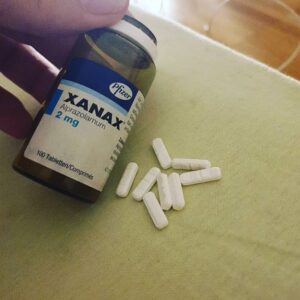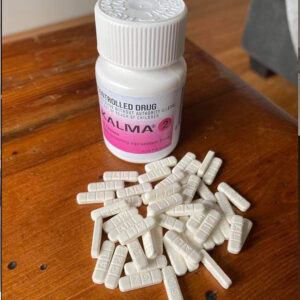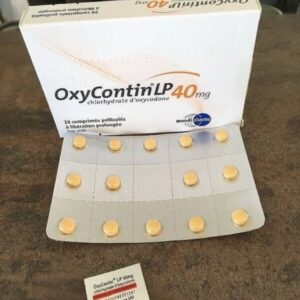buy lyrica 300mg australia – buy pregabalin 300mg australia
buy lyrica 300mg australia – buy pregabalin 300mg australia. lyrica is used to treat neuropathic pain, which is pain caused by an abnormality of, or damage to, the nerves.
lyrica is also used to control epilepsy. epilepsy is a condition where you have repeated seizures (fits). there are many different types of seizures, ranging from mild to severe.
lyrica belongs to a group of medicines called anticonvulsants. these medicines are thought to work by controlling brain chemicals which send signals to nerves so that seizures do not happen.
buy lyrica 300mg australia – buy pregabalin 300mg australia – lyrica also has pain relieving effects.
lyrica may be used alone, or in combination with other medicines, to treat your condition.
your doctor may prescribe lyrica in addition to your current therapy when your current treatment is no longer working as well as before.
ask your doctor if you have any questions about why this medicine has been prescribed for you. your doctor may have prescribed it for another reason.
this medicine is available only with a doctor’s prescription.
use in children
there is not enough information to recommend the use of this medicine in children under the age of 18 years.
buy lyrica 300mg australia – buy pregabalin 300mg australia – before you take lyrica
when you must not take it
do not take lyrica if you have an allergy to:
pregabalin, the active ingredient in lyrica, or
any of the ingredients listed at the end of this leaflet.
some of the symptoms of an allergic reaction may include:
shortness of breath, wheezing or difficulty breathing
swelling of the face, lips, tongue or other parts of the body
rash, itching or hives on the skin.
do not take this medicine after the expiry date printed on the pack or if the packaging is torn or shows signs of tampering. if the capsules have expired or the pack is damaged, return to your pharmacist for disposal.
if you are not sure whether you should start taking this medicine, talk to your doctor.
buy lyrica 300mg australia – buy pregabalin 300mg australia
before you start to take it
tell your doctor or pharmacist if you have allergies to:
any other medicines, especially barbiturates or any other anticonvulsant medicines
any other substances, such as foods, preservatives or dyes.
tell your doctor if you have or have had any of the following medical conditions:
congestive heart failure
hereditary problems with galactose metabolism
kidney problems
diabetes
depression.
tell your doctor if you have a history of drug abuse. lyrica poses risks of misuse, abuse and dependence. your body may become used to you taking lyrica and this may result in physical dependence. it means that you may experience withdrawal symptoms if you stop taking lyrica suddenly. so it is important to strictly follow the directions given by your doctor.
tell your doctor if you are pregnant or plan to become pregnant. lyrica is not recommended for use during pregnancy. however, if you have epilepsy, it is very important to control your fits while you are pregnant. if it is necessary for you to take lyrica, your doctor can help you decide whether or not to take it during pregnancy.
tell your doctor if you are breast-feeding or plan to breast-feed. the active ingredient in lyrica passes into breast milk and its safety in infants is unknown. it is recommended that you do not breast-feed while taking lyrica.
if you have not told your doctor about any of the above, tell them before you start taking lyrica.
buy lyrica 300mg australia – buy pregabalin 300mg australia
taking other medicines
tell your doctor or pharmacist if you are taking any other medicines, including:
all prescription medicines
all medicines, vitamins, herbal supplements or natural therapies you buy without a prescription from a pharmacy, supermarket, naturopath or health food shop.
some medicines may be affected by lyrica or may affect how well it works. you may need different amounts of your medicines, or you may need to take different medicines. your doctor will advise you.
lyrica and certain other medicines may influence each other.
using lyrica with other medicines that can make you feel drowsy, such as sleeping tablets and other pain relievers (e.g. benzodiazepines and opioids), antihistamines, antidepressants, antipsychotics, cannabis, and alcohol may result in severe drowsiness, decreased awareness, breathing problems, coma and death.
your doctor will minimise the dose and duration of use; and monitor you for signs and symptoms of breathing difficulties and sedation.
your doctor and pharmacist have more information on medicines to be careful with or avoid while taking lyrica.
buy lyrica 300mg australia – buy pregabalin 300mg australia
how to take lyrica
follow all directions given to you by your doctor carefully. they may differ from the information contained in this leaflet.
if you do not understand the instructions on the box, ask your doctor or pharmacist for help.
how much to take
your doctor will tell you how many capsules you need to take each day. this may depend on your age, your condition and whether or not you are taking any other medicines.
your doctor may recommend that you start with a low dose of lyrica and slowly increase the dose to the lowest amount needed to control your epilepsy/convulsions or neuropathic pain.
the usual dose range is 150 mg per day to 600 mg per day given in two divided doses.
how to take it
swallow the capsules whole with a full glass of water.
buy lyrica 300mg australia – buy pregabalin 300mg australia
when to take it
take your medicine at about the same time each day. taking it at the same time each day will have the best effect. it will also help you remember when to take it.
it does not matter if you take this medicine before or after food.
buy lyrica 300mg australia – buy pregabalin 300mg australia
how long to take it
continue taking your medicine for as long as your doctor tells you.
this medicine helps to control your condition, but does not cure it. it is important to keep taking your medicine even if you feel well.
do not stop taking lyrica, or lower the dosage, without checking with your doctor. do not let yourself run out of medicine over the weekend or on holidays. stopping lyrica suddenly may worsen your condition or increase your chance of experiencing withdrawal symptoms, such as sleeplessness, headache, nausea (feeling sick), anxiety, excessive sweating or diarrhoea (runny stools).
when you forget to take it
if it is almost time for your next dose (within 4 hours), skip the dose you missed and take your next dose when you are meant to.
otherwise, take it as soon as you remember, and then go back to taking your medicine as you would normally.
do not take a double dose to make up for the dose that you missed. this may increase the chance of you getting an unwanted side effect.
if you are not sure what to do, ask your doctor or pharmacist.
when having trouble remembering to take your medicine, ask your pharmacist for some hints.
if you take too much (overdose)
immediately telephone your doctor or the poisons information centre (telephone 13 11 26) for advice, or go to accident and emergency at the nearest hospital, if you think that you or anyone else may have taken too much lyrica. do this even if there are no signs of discomfort or poisoning. you may need urgent medical attention.
symptoms of an overdose with lyrica may include mood changes, feeling tired, confusion, depression, agitation, restlessness or seizures.
buy lyrica 300mg australia – buy pregabalin 300mg australia
while you are taking lyrica
things you must do
if you are about to be started on any new medicine, remind your doctor, dentist or pharmacist that you are taking lyrica.
tell any other doctors, dentists and pharmacists who treat you that you are taking this medicine.
if you are going to have surgery, tell the surgeon or anaesthetist that you are taking this medicine. it may affect other medicines used during surgery.
tell your doctor immediately if you experience any changes in your vision. lyrica may cause blurring or other changes in eyesight. your doctor may ask you to stop taking lyrica to improve these symptoms.
tell your doctor immediately if you have any thoughts of suicide or self-harm, any unusual changes in mood or behaviour, or show signs of depression. some people taking medicines to treat convulsions, such as lyrica, have had thoughts of harming themselves or taking their life.
patients and caregivers should be alert and monitor for these effects.
signs and symptoms of suicidal risk include:
thoughts or talk of death or suicide
thoughts or talk of self-harm or harm to others
any recent attempts of self-harm
new or an increase in aggressive behaviour, irritability or agitation
new or worsening depression.
mention of suicide or violence must be taken seriously.
What is pain-relief medicine?
Pain-relief medicines are used as part of a strategy to manage short (acute) or long-term (chronic) pain. They work by targeting the cause of the pain or by reducing the feeling of pain.
Some pain-relief can be purchased ‘over-the-counter’ (OTC), meaning you don’t need a prescription from your doctor to access them.
If your pain persists, is not being adequately controlled or you are not sure how to cope with your pain, you should speak to your doctor. They may recommend different strategies for managing long-term (chronic) pain, including prescription medicines, as well as strategies that don’t involve medicine.
What are the different types of pain-relief medicines? PREGABALIN LYRICA 300MG AUSTRALIA
As everyone’s experience of pain is different, individuals need different ways to help manage their pain. Different pain-relief options suit particular circumstances, as well.
Over-the-counter (OTC) medicines include:
- paracetamol
- non-steroidal anti-inflammatory drugs (NSAIDs), such as ibuprofen, aspirin or diclofenac
- gels and creams containing medicines — such as NSAIDs and capsaicin — that are absorbed through your skin (topical medicines)
Your doctor may also recommend a prescription medicine, such as:
- anti-epileptic medicines, such as pregabalin, gabapentin or carbamazepine
- antidepressants, such as amitriptyline or duloxetine
- opioids, for example codeine, morphine or tramadol
- other types of medicine that treat the cause of your pain, such as muscle relaxants or corticosteroids.







Reviews
There are no reviews yet.